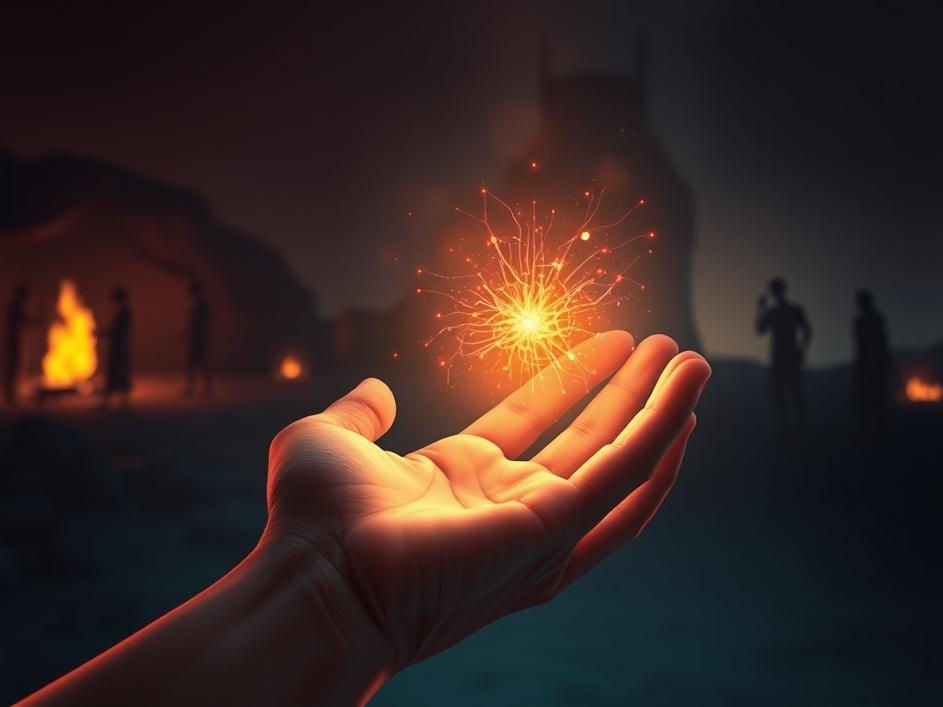


We are a digital agency helping businesses develop immersive, engaging, and user-focused web, app, and software solutions.
2310 Mira Vista Ave
Montrose, CA 91020
2500+ reviews based on client feedback

What's Included?
ToggleImagine a time before fire. Humans shivered in the dark, ate raw food, and feared the night. Then, someone, or something, brought fire. It changed everything. It gave us warmth, light, cooked meals, and a way to craft tools. But fire also burned. It could destroy homes, forests, and lives if not handled with care. Fast forward thousands of years, and we’re at another such moment. Alphabet CEO Sundar Pichai recently talked about artificial intelligence, or AI. He didn’t just call it important. He said AI is even more profound than fire or electricity. That’s a huge statement, right? It makes you stop and think about just how big a deal this technology truly is. When someone leading a massive tech company speaks with such gravity, it’s worth paying close attention. He’s not just talking about the latest gadget. He’s talking about a fundamental shift in how we live, work, and even think. It’s about something that touches the core of what it means to be human.
Pichai’s comparison isn’t about exaggerating; it’s about perspective. Think about electricity. We use it daily without a second thought. It powers our homes, hospitals, and entire industries. It truly lit up the world. But it also comes with risks, like shocks and power outages. The point is, these breakthroughs – fire, electricity – weren’t just new tools. They were new ways of organizing society, new levels of human ability. Pichai sees AI in the same light. It’s not just fancy algorithms or smart chatbots. It’s a foundational technology that will reshape nearly every aspect of our lives. From how doctors diagnose illness to how we solve complex scientific problems, AI promises to be an underlying force. This idea challenges us to think beyond its current uses. We need to consider its long-term, widespread effects. It forces us to acknowledge that we are standing at the start of something truly immense. Something that will define generations to come, much like those earlier discoveries did.
Like fire, AI holds incredible promise. It can help us find cures for diseases faster than ever before. It can manage complex systems, making everything from traffic flow to energy grids more efficient. Imagine personalized education for every student, or real-time climate modeling that helps us prepare for environmental changes. These are the bright spots, the potential benefits that could uplift billions. But, like fire, AI also carries significant risks. Concerns exist about job displacement, as AI takes over tasks previously done by humans. Worries about privacy arise, as AI systems collect and process vast amounts of data. And then there are the ethical dilemmas: how do we ensure AI is fair, unbiased, and used for good? Who is accountable when an AI makes a critical decision? These aren’t easy questions, and they don’t have simple answers. They demand careful thought and proactive planning from all of us, not just the tech companies building these systems. We must steer this powerful force towards progress, not peril.
This is where Pichai’s idea of “mastering” AI comes in. It’s not enough to just create powerful AI or even just to use it. We need to understand it deeply, guide its development, and set clear rules for its use. This “mastery” isn’t just for engineers. It means everyone needs to be part of the conversation. Educators need to think about how to prepare the next generation for an AI-powered world. Policymakers need to craft rules that encourage innovation while protecting society. Businesses need to consider the ethical side of their AI products. And as individuals, we need to be informed citizens, understanding both the benefits and the potential harms. Mastering AI means learning to harness its power while avoiding its dangers, much like ancient humans learned to control fire. It requires a thoughtful, collective effort. We must ensure this powerful technology serves humanity’s best interests, not just its immediate desires. It’s about building a future where AI helps us flourish.
So, what does this all mean for us? It means we can’t just watch as AI technology evolves. We have a shared responsibility to engage with it, understand it, and help shape its direction. This isn’t just about the big tech companies or governments; it’s about every community, every school, and every household. We need to foster open discussions. We should encourage diverse voices in AI development, and demand transparency from the companies building these tools. We should be asking tough questions about how AI impacts fairness, freedom, and human dignity. The future isn’t something that just happens to us; it’s something we build, day by day, decision by decision. If AI is truly as profound as fire or electricity, then our approach to it must be equally thoughtful. We have a chance to learn from history. We can embrace the incredible power of this new spark, but also build safeguards and wisdom around it. This is our moment to ensure that AI truly benefits all of humanity, guiding it with foresight and a deep sense of shared purpose.
Sundar Pichai’s words are a powerful reminder. AI isn’t just another tech leap; it’s a fundamental force that will define our future. Just as fire transformed early humans, and electricity reshaped the industrial age, AI stands poised to redefine what’s possible for humanity. This isn’t a future that’s set in stone; it’s a narrative we are writing right now. Every choice we make about how we develop, regulate, and integrate AI into our lives matters. The ability to master this new “fire” – to use its immense power for good while carefully reducing its risks – will determine our collective survival and prosperity. It calls for working together, ethical thinking, and a willingness to adapt. Let’s step up to this challenge, not with fear, but with thoughtful determination. We must ensure that this next great spark truly illuminates a brighter path for everyone. The story of AI, and its impact on us, is still largely unwritten, and we hold the pen.



Comments are closed